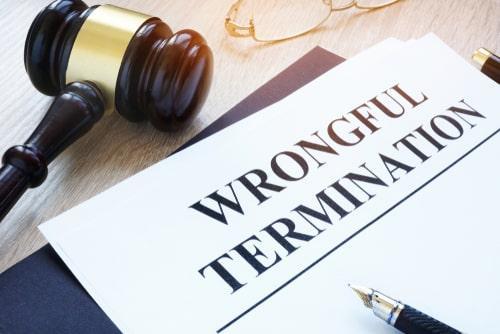Recent Blog Posts
What Is the Purpose of a Living Will?
 You may have already considered how you want your assets distributed to heirs after you pass away, but this is not the only issue that estate plans can address. Have you ever wondered what types of medical treatment you would want if you became incapacitated through a serious illness or injury? For example, if you were involved in a car accident and left comatose, would you want doctors to do everything possible to extend your life? Would you want a feeding tube, mechanical ventilation, or other death-delaying procedures? Would you want to let nature take its course?
You may have already considered how you want your assets distributed to heirs after you pass away, but this is not the only issue that estate plans can address. Have you ever wondered what types of medical treatment you would want if you became incapacitated through a serious illness or injury? For example, if you were involved in a car accident and left comatose, would you want doctors to do everything possible to extend your life? Would you want a feeding tube, mechanical ventilation, or other death-delaying procedures? Would you want to let nature take its course?
Through a living will, you can make these types of decisions in advance. This saves your loved ones from being forced to make these decisions for you and also gives you the peace of mind knowing that your medical wishes will be followed.
The Terri Schiavo Case Emphasized the Need for a Living Will
Although it was over 20 years ago, many people still remember the media frenzy surrounding Terri Schiavo. The young woman fell into an irreversible persistent vegetative state after suffering a cardiac arrest at age 26. Her husband believed that Terri would not want to be kept alive via long-term life support and elected to have her feeding tube removed. The woman’s parents strongly disagreed and wanted their daughter to continue receiving artificial hydration and nutrition. The case resulted in a seven-year legal battle.
What Are the Advantages of a Sole Proprietorship?
 If you are considering starting a business, you have a number of important decisions in front of you. One of the most critical decisions you will ever make about your business is what type of business structure you should choose. Your business structure will determine how you pay your taxes, to what degree your personal assets are at risk, your day-to-day operations, and more. Some of the most common business structures include S-corporation, partnership, limited liability company, and sole proprietorship. Each structure has its own advantages and drawbacks and the types of structure you choose will be based on your needs and business goals. In this post, we will be discussing the benefits associated with a sole proprietorship.
If you are considering starting a business, you have a number of important decisions in front of you. One of the most critical decisions you will ever make about your business is what type of business structure you should choose. Your business structure will determine how you pay your taxes, to what degree your personal assets are at risk, your day-to-day operations, and more. Some of the most common business structures include S-corporation, partnership, limited liability company, and sole proprietorship. Each structure has its own advantages and drawbacks and the types of structure you choose will be based on your needs and business goals. In this post, we will be discussing the benefits associated with a sole proprietorship.
What is a Sole Proprietorship?
In a sole proprietorship, there is no legal distinction between the business entity and the business owner. A sole proprietor is solely responsible for the ownership and management of his or her business and does not share ownership with other partners. A sole proprietor receives all of the business’s income but is also responsible for the business’s liabilities, debts, and taxes. The business assets are not separate from the owner’s personal assets as with many businesses.
Three Options for Business Valuation in an Illinois Divorce
 When you are going through a divorce, financial and property considerations are often among the most complex elements of the process. Dividing marital assets can be intensely personal, as well as extremely confusing, depending on what your marital estate includes. For example, if you and your spouse bought a particular piece of furniture, you may both have a sentimental attachment to it and deciding who should get to keep it may cause an argument. However, if you or your spouse own a business—or part of one—determining how those interests are to be handled in divorce may be much more challenging.
When you are going through a divorce, financial and property considerations are often among the most complex elements of the process. Dividing marital assets can be intensely personal, as well as extremely confusing, depending on what your marital estate includes. For example, if you and your spouse bought a particular piece of furniture, you may both have a sentimental attachment to it and deciding who should get to keep it may cause an argument. However, if you or your spouse own a business—or part of one—determining how those interests are to be handled in divorce may be much more challenging.
Proper Valuation Matters
To ensure the entire process of dividing property is completed equitably and in accordance with the law, you will need to establish the value of the business interests to be included in the marital estate. In fact, a business valuation is important even the company is non-marital, as personal assets of each spouse must be taken into account as well.
The Effects of the Coronavirus Crisis on Illinois Real Estate Transactions
 As a novel (new) coronavirus continues to spread in the United States and around the world, governmental authorities and agencies have taken serious steps to limit the reach of the virus. Here in Illinois, Governor J.B. Pritzker first ordered the closure of non-essential businesses, eventually to be followed by a “stay-at-home” or “shelter-in-place” order that became effective last weekend.
As a novel (new) coronavirus continues to spread in the United States and around the world, governmental authorities and agencies have taken serious steps to limit the reach of the virus. Here in Illinois, Governor J.B. Pritzker first ordered the closure of non-essential businesses, eventually to be followed by a “stay-at-home” or “shelter-in-place” order that became effective last weekend.
For many families, the COVID-19 outbreak coincided with their search for new homes or their attempts to sell their current homes. If this describes your situation, you may be wondering about the status of your transaction, as well as what the road ahead might look like.
Real Estate Is an Essential Industry
According to the governor’s list of essential and non-essential businesses, the real estate industry is considered essential. Under the Illinois shelter in place executive order, real estate businesses—including real estate brokers and attorneys—are permitted to remain operational, but they must remain compliant with social distancing and other required preventative measures. This means keeping a safe distance from other people, conducting as much business as possible using telephone, email, or video conferencing, and absolutely staying home if you feel sick.
Should I Include a No-Contest Clause in My Will?
 There are a number of reasons that a will or other estate planning document may be invalid. If the testator was not of sound mind due to dementia or another health condition when he or she created the will, for example, the will may not represent the testator’s true wishes. If a testator was coerced or tricked into the provisions contained in his or her will, it is also invalid. If a loved one has reason to believe that the directions contained in a deceased person’s will should not be followed, they may contest the will in court. Unfortunately, some beneficiaries may contest a will simply because they do not like the instructions contained within the will. If you are concerned that someone may challenge the validity of your will after you pass away, you may want to consider adding a “no-contest” clause.
There are a number of reasons that a will or other estate planning document may be invalid. If the testator was not of sound mind due to dementia or another health condition when he or she created the will, for example, the will may not represent the testator’s true wishes. If a testator was coerced or tricked into the provisions contained in his or her will, it is also invalid. If a loved one has reason to believe that the directions contained in a deceased person’s will should not be followed, they may contest the will in court. Unfortunately, some beneficiaries may contest a will simply because they do not like the instructions contained within the will. If you are concerned that someone may challenge the validity of your will after you pass away, you may want to consider adding a “no-contest” clause.
Basics of No-Contest Clauses
There is no way to completely prevent your will from being challenged after your death. However, you can discourage beneficiaries from challenging it. A no-contest clause is a provision in a will or trust that establishes certain “penalties” if a beneficiary challenges the validity of the will or trust. For example, perhaps you are worried that one of your children will be unhappy with his or her share of your estate. You worry that he or she will contest the validity of your will in an attempt to have the will thrown out. You could include a no-contest clause that states that if a beneficiary disputes the validity of your will and loses, he or she will lose part or all of the inheritance assigned to him or her. The possibility of losing a significant inheritance can make a beneficiary think twice before challenging your will.
How a Non-Compete Agreement Can Benefit Your Business
 When an individual purchases a business, they are not only buying the physical assets associated with that business. They are also taking ownership of more abstract assets like the existing customer base, the name and reputation of the business, and intellectual property. Understandably, someone who buys a business wants to ensure that the value of these intangible assets is not reduced because the original owner of the business is opening a competing business in the same market. This is just one of many situations in which a non-compete agreement can be beneficial.
When an individual purchases a business, they are not only buying the physical assets associated with that business. They are also taking ownership of more abstract assets like the existing customer base, the name and reputation of the business, and intellectual property. Understandably, someone who buys a business wants to ensure that the value of these intangible assets is not reduced because the original owner of the business is opening a competing business in the same market. This is just one of many situations in which a non-compete agreement can be beneficial.
How Does a Non-Compete Agreement Work?
Put simply, a non-compete agreement is a legally binding contract involving a promise not to enter into business competition of some kind. Non-competition clauses are most often used to prevent an employee from working for a competitor or starting a business that competes with his or her employer’s business. These agreements can also include a provision prohibiting the employee from disclosing proprietary information to other parties. Covenants not to compete are often also required of business consultants and contractors.
Potential Red Flags When Buying a New Home
 Buying a new home can be a very exciting undertaking. However, there are also many potential pitfalls, and it is important to not take the process lightly. If you are in the market for a new home, it is a good idea to take your time and make sure that you are making the best possible decision for your situation. You should also enlist the help of a qualified residential real estate lawyer to assist you along the way. As you begin your home search, be on the lookout for red flags that might be indicators that the house you are thinking about buying would be a big mistake.
Buying a new home can be a very exciting undertaking. However, there are also many potential pitfalls, and it is important to not take the process lightly. If you are in the market for a new home, it is a good idea to take your time and make sure that you are making the best possible decision for your situation. You should also enlist the help of a qualified residential real estate lawyer to assist you along the way. As you begin your home search, be on the lookout for red flags that might be indicators that the house you are thinking about buying would be a big mistake.
Difficulties With Inspections
A home inspection is an essential part of the home-buying process. The point of the inspection is to make sure that a prospective buyer is fully aware of any problems that exist with the home. Roof issues, water damage, outdated electrical wiring, plumbing concerns, and a variety of other problems are not always immediately noticeable without an inspection by a fully qualified inspector.
What Responsibilities Does an Executor of a Will Have?
 Creating an estate plan is a vital responsibility regardless of your wealth or property. Surprisingly, approximately 60 percent of American adults have not even created a will, let alone any other type of estate planning document. Everyone deserves to decide how their possessions are passed down to heirs, but these decisions are left to state law when a person passes away without any estate planning instruments in place. If you are ready to start making your estate plan, you may be wondering who you should choose as the executor of your will. The executor has many key obligations, so it is important to choose someone who can fulfill these duties.
Creating an estate plan is a vital responsibility regardless of your wealth or property. Surprisingly, approximately 60 percent of American adults have not even created a will, let alone any other type of estate planning document. Everyone deserves to decide how their possessions are passed down to heirs, but these decisions are left to state law when a person passes away without any estate planning instruments in place. If you are ready to start making your estate plan, you may be wondering who you should choose as the executor of your will. The executor has many key obligations, so it is important to choose someone who can fulfill these duties.
Completing Your Final Affairs
An executor is the person responsible for finalizing a deceased person’s worldly affairs. Executors, also called personal representatives, have a legal duty to act in good faith and with integrity on behalf of a deceased person. Executors have many responsibilities, including but not limited to:
Reduce the Chances of a Wrongful Termination Lawsuit By Following These Tips
 If you are a business owner, you are probably an extremely busy person. The last thing you need is to deal with an employee suing you for alleged wrongful termination. Not only are wrongful termination lawsuits stressful and time consuming, they can also be extremely expensive. The average amount received by terminated employees in a wrongful termination or employment discrimination claim is just over $37,000. Most wrongful termination claims involve an allegation that the employer breached the employment contract or that the termination somehow violated a state or federal employment law. One of the best ways to avoid a discrimination suit or wrongful termination claim is to follow proper procedures when firing employees.
If you are a business owner, you are probably an extremely busy person. The last thing you need is to deal with an employee suing you for alleged wrongful termination. Not only are wrongful termination lawsuits stressful and time consuming, they can also be extremely expensive. The average amount received by terminated employees in a wrongful termination or employment discrimination claim is just over $37,000. Most wrongful termination claims involve an allegation that the employer breached the employment contract or that the termination somehow violated a state or federal employment law. One of the best ways to avoid a discrimination suit or wrongful termination claim is to follow proper procedures when firing employees.
Make Sure All Employees Understand the Company’s Policies
Employees should be fully aware of the company’s policies regarding employee expectations, discipline, and termination. Many employers find that writing policies and procedures in a comprehensive employee handbook is one way to ensure that employees have a written record of rules and expectations. An experienced business lawyer is a tremendously valuable resource when it comes to formulating an employee handbook that gives you the best chances of avoiding a lawsuit.
Planning to Purchase a New Home? Watch Out for These Common Mistakes
 There are so many things to consider when you are thinking about a new home purchase. What neighborhood should you move to? What types of amenities are most important to you? Are there certain features in a home that you cannot live without? What size home should you buy? Fantasizing about the perfect new house, apartment, or condominium can be one of the most enjoyable parts about the home-buying process. However, those looking to buy a home should also be aware of the many pitfalls that can spell disaster. The home-buying process can involve complicated financial challenges and legalese-filled documents that are impossible to understand. This is one reason it is so important to work with an experienced real estate attorney when buying a new home.
There are so many things to consider when you are thinking about a new home purchase. What neighborhood should you move to? What types of amenities are most important to you? Are there certain features in a home that you cannot live without? What size home should you buy? Fantasizing about the perfect new house, apartment, or condominium can be one of the most enjoyable parts about the home-buying process. However, those looking to buy a home should also be aware of the many pitfalls that can spell disaster. The home-buying process can involve complicated financial challenges and legalese-filled documents that are impossible to understand. This is one reason it is so important to work with an experienced real estate attorney when buying a new home.
Buying a Home that Exceeds Your Budget
Making a realistic budget can be extremely difficult. The majority of people grossly underestimate their actual expenses and forget about the small expenses that add up every month. If you overestimate the amount of money you can reasonably contribute to your mortgage every month, you may find yourself unable to make these payments on time. You could even end up at risk of foreclosure. When determining how much you can spend on a new home, make sure to consider the added costs which you do not necessarily experience as a renter. You will need to account for property taxes, utility bills, and the costs of maintaining your home.

 630-665-2500
630-665-2500







